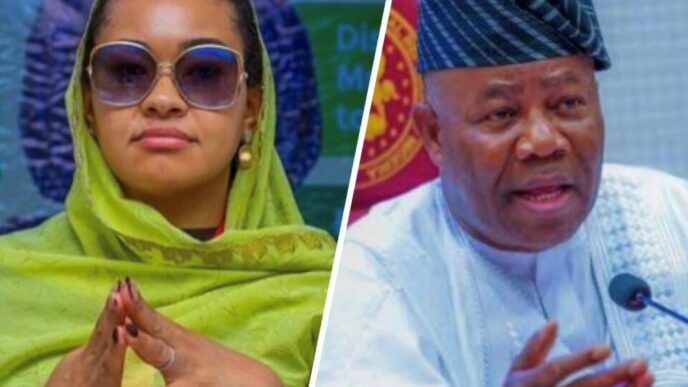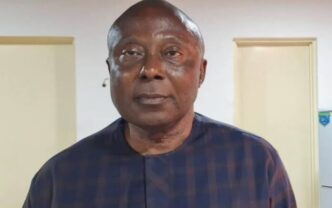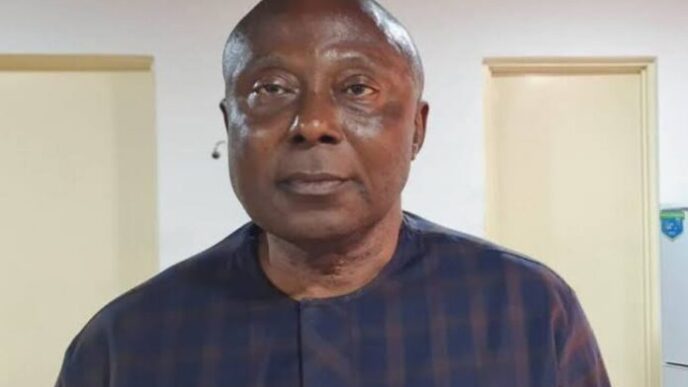Governor Siminalayi Fubara of Rivers State has declared that he is not desperate to return to office, suggesting that his commitment to the position may have waned amid the political crisis in the state.
Speaking during a service of songs in honour of the late elder statesman, Edwin Clark, in Port Harcourt on Sunday—an event organised by the Rivers Elders Forum—Fubara made his stance clear.
“Do you even know if I want to go back there? My spirit has already left there,” he said, responding to various speakers who referred to him as “Governor” and criticized his suspension, demanding its reversal.
Fubara distanced himself from their comments, describing them as personal views that could hinder the peace process.
“Not everything is by ‘oshogbe,’” he added, signaling his preference for a more thoughtful, less confrontational approach to the ongoing conflict.
He also cautioned his supporters, noting that while their intentions may have been good, some of their actions had only complicated his situation further.
Fubara urged attendees to stay focused on honouring Edwin Clark, who he described as a selfless leader committed to the Niger Delta cause, rather than turning the event into a political battleground.
Rivers State has been embroiled in a fierce political dispute between Fubara and his predecessor, Minister of the Federal Capital Territory (FCT), Nyesom Wike.
In December 2023, President Bola Tinubu stepped in to mediate the crisis, initiating a peace deal.
However, the conflict escalated again when President Tinubu, on March 18, 2025, declared a state of emergency in the state.
The Nigerian leader suspended Governor Fubara, Deputy Governor Ngozi Odu, and all state lawmakers, appointing retired naval officer Ibok-Ete Ibas as the sole administrator.
The federal intervention effectively dismantled the existing democratic structure in Rivers, placing it under direct federal control.
In response, 11 governors from the Peoples Democratic Party (PDP) filed a suit at the Supreme Court challenging the suspension and the declaration of a state of emergency.
The National Assembly, however, urged the court to dismiss the suit, arguing it was procedurally flawed, lacked merit, and was outside the court’s jurisdiction. It also requested that the plaintiffs pay ₦1 billion in costs for what it described as a frivolous and speculative case.

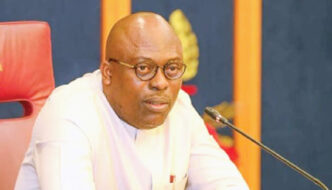
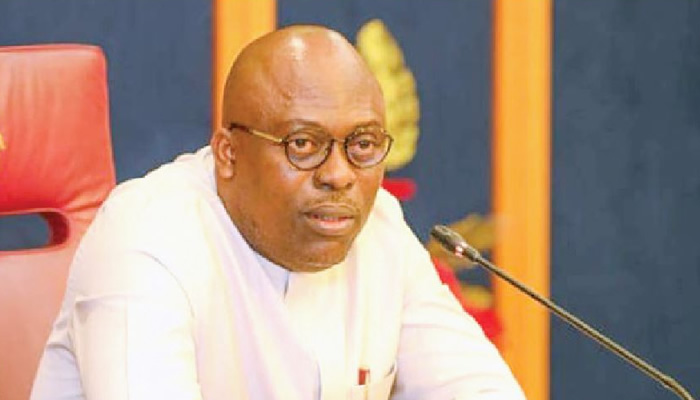
![Naira Abuse: Outrage as Nigerians ask EFCC to arrest Tompolo [VIDEO]](https://witnessngr.com/wp-content/uploads/2025/05/Tompolo-3-332x208.jpg)
![Naira Abuse: Outrage as Nigerians ask EFCC to arrest Tompolo [VIDEO]](https://witnessngr.com/wp-content/uploads/2025/05/Tompolo-3-688x387.jpg)

